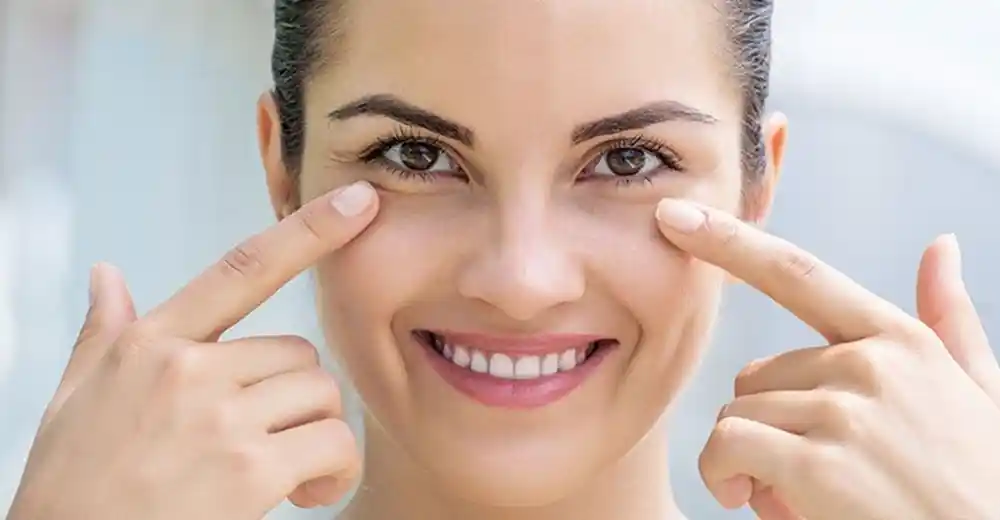Dark circles under the eyes can make you look tired, stressed, or older than you are. They are a common concern for many and can be caused by various factors, including genetics, lack of sleep, dehydration, aging, and even certain medical conditions. The good news is that with the right treatments and lifestyle adjustments, you can significantly reduce the appearance of dark circles and achieve brighter, healthier eyes.
The Causes of Dark Circles
Before diving into treatments, it’s essential to understand what causes dark circles:
- Genetics: Dark circles can run in families. If your parents or grandparents had them, you might be predisposed.
- Aging: As we age, our skin becomes thinner and loses collagen, making the blood vessels under the eyes more visible.
- Lifestyle Factors: Lack of sleep, excessive screen time, and stress can contribute to dark circles.
- Allergies: Conditions like hay fever can cause itching and rubbing of the eyes, leading to dark circles.
- Dehydration: When the body is dehydrated, the skin under the eyes appears dull and sunken.
- Sun Exposure: Overexposure to the sun can increase melanin production, causing pigmentation under the eyes.
Effective Treatments for Dark Circles
Dark Circle Treatments encompass a variety of approaches tailored to individual needs, ranging from natural remedies to advanced medical procedures.
While dark circles are not usually a sign of a serious health issue, they can be a cosmetic concern. Here are some expert-recommended treatments:
1. Home Remedies
Home remedies are a cost-effective and natural way to treat mild dark circles. Here are a few popular options:
- Cucumber Slices: Cucumber is known for its cooling and soothing properties. Place chilled cucumber slices over your eyes for 10-15 minutes.
- Tea Bags: The caffeine and antioxidants in tea can help shrink blood vessels and reduce puffiness. Soak tea bags in cold water, chill them, and place them on your eyes.
- Cold Compress: Applying a cold compress can reduce swelling and improve circulation under the eyes.
- Aloe Vera Gel: Aloe vera hydrates the skin and reduces pigmentation. Apply a thin layer under the eyes before bedtime.
2. Over-the-Counter Products
There are many products available that target dark circles. Look for ingredients like:
- Vitamin C: Brightens the skin and reduces pigmentation.
- Retinol: Boosts collagen production, thickening the skin and reducing the visibility of blood vessels.
- Hyaluronic Acid: Provides intense hydration to plump and smooth the under-eye area.
- Caffeine: Reduces puffiness by constricting blood vessels.
Always do a patch test before trying a new product to ensure you don’t have an allergic reaction.
3. Medical Treatments
For stubborn or severe dark circles, medical treatments may be more effective. Consult a dermatologist or cosmetic specialist for options such as:
- Chemical Peels: Mild chemical peels can lighten pigmentation under the eyes.
- Laser Therapy: Lasers target pigmentation and stimulate collagen production.
- Fillers: Dermal fillers can address volume loss under the eyes, reducing the appearance of dark circles.
- Microneedling: This procedure stimulates collagen and elastin production, improving skin texture and tone.
- PRP Therapy (Platelet-Rich Plasma): PRP injections can rejuvenate the skin and reduce pigmentation.
4. Lifestyle Changes
Adopting healthy habits can make a significant difference in the appearance of dark circles:
- Get Adequate Sleep: Aim for 7-9 hours of quality sleep each night.
- Stay Hydrated: Drink at least 8 glasses of water daily to keep your skin hydrated.
- Eat a Balanced Diet: Include foods rich in vitamins C, E, and K, as well as iron, to support skin health.
- Use Sunscreen: Protect your under-eye area from harmful UV rays by using sunscreen daily.
- Limit Screen Time: Take regular breaks from screens to reduce eye strain.
Preventing Dark Circles
Prevention is better than cure. Incorporate these tips into your routine to keep dark circles at bay:
- Gentle Eye Care: Avoid rubbing your eyes, as this can irritate the skin and worsen dark circles.
- Elevate Your Head While Sleeping: Sleeping with your head slightly elevated can prevent fluid buildup under the eyes.
- Remove Makeup Before Bed: Leaving makeup on overnight can irritate the skin and clog pores.
When to See a Doctor
While dark circles are usually a cosmetic issue, sometimes they can indicate an underlying health problem. If your dark circles are accompanied by other symptoms like swelling, itching, or discoloration in other parts of your body, consult a doctor.
Conclusion
Dark circles can be frustrating, but with a combination of the right treatments, products, and lifestyle adjustments, you can achieve a more refreshed and youthful appearance. Whether you opt for home remedies, over-the-counter products, or professional treatments, consistency is key. Take care of your overall health, and your eyes will thank you with a brighter, healthier look.


